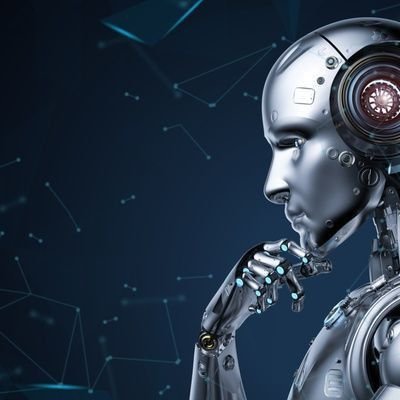
Digital marketing has been undergoing a significant transformation in recent years, driven by advancements in artificial intelligence (AI). One of the most revolutionary changes is the rise of AI-generated content. From blog posts and social media updates to email campaigns and product descriptions, AI is now capable of creating content that is not only relevant and engaging but also personalized to the audience. As a result, AI-generated content is reshaping how businesses interact with their customers, providing new opportunities for growth, and optimizing marketing strategies.
In this article, we will explore the impact of AI-generated content on digital marketing, its benefits, challenges, and the future prospects of this technology in revolutionizing the way brands connect with their audiences.
What is AI-Generated Content?
AI-generated content refers to any type of text, image, video, or audio created by artificial intelligence. Using machine learning algorithms, natural language processing (NLP), and other AI technologies, computers can analyze large datasets, understand patterns, and produce content that mimics human creativity and thought.
AI-generated content is not limited to text; it also includes images, videos, and even music. However, in the context of digital marketing, the focus is primarily on written content such as articles, product descriptions, email newsletters, social media posts, and ad copy.
How Does AI-Generated Content Work?
AI-generated content creation involves several steps:
- Data Collection and Analysis: AI models require vast amounts of data to learn and improve. This data can include anything from text documents, web pages, and social media posts to customer behavior analytics and market trends.
- Machine Learning Algorithms: These algorithms analyze the data, identify patterns, and learn from them. For content generation, they use techniques such as natural language processing (NLP) to understand context, semantics, and tone.
- Content Creation: Once the AI has been trained, it can begin generating content. For example, an AI writing tool might take input from a user, such as a topic or a set of keywords, and produce a coherent article or a marketing email based on that information.
- Optimization and Feedback: AI systems continuously learn and optimize their output based on feedback and new data. This helps them improve over time, producing more accurate and relevant content.
The Benefits of AI-Generated Content in Digital Marketing
AI-generated content offers numerous benefits that are driving its rapid adoption in the digital marketing world. Here are some of the key advantages:
1. Increased Efficiency and Speed
One of the most significant advantages of AI-generated content is the speed at which it can be created. Unlike human writers, AI can produce content in seconds, significantly reducing the time needed to create marketing materials. This efficiency allows marketers to publish more content at a faster rate, keeping their audience engaged and boosting their online presence.
For instance, an AI tool can quickly generate hundreds of product descriptions for an e-commerce site or produce multiple variations of ad copy for A/B testing in just a few minutes. This level of productivity would be impossible for a human team to achieve in the same timeframe.
2. Cost Savings
Creating content manually can be costly, especially when considering the salaries of writers, editors, and other creative professionals. AI-generated content reduces these costs by automating much of the writing process. Businesses can save money on content creation while still maintaining a high output level, making AI a cost-effective solution for companies of all sizes.
For small businesses or startups with limited budgets, AI-generated content provides a way to compete with larger companies that have more resources dedicated to marketing.
3. Personalization at Scale
Personalization is a key trend in digital marketing, with studies showing that personalized content can significantly improve customer engagement and conversion rates. AI-generated content enables businesses to personalize their messaging at scale, something that is incredibly difficult to achieve with human writers alone.
AI can analyze user behavior, preferences, and demographics to create personalized content for different segments of an audience. For example, an AI-powered email marketing tool can generate unique email copies for each recipient based on their past interactions with the brand, purchase history, and browsing behavior.
4. Data-Driven Insights
AI-generated content tools are not only capable of creating content but also analyzing its performance. By integrating with analytics platforms, these tools can provide insights into what type of content resonates most with a target audience, which headlines attract the most clicks, and which topics generate the most engagement.
This data-driven approach allows marketers to continuously refine their content strategies, optimizing for better results. Instead of relying on guesswork or intuition, marketers can make informed decisions backed by real data.
5. Consistent Quality and Tone
Maintaining a consistent tone and style across all content is crucial for brand identity. However, ensuring consistency can be challenging when multiple writers are involved. AI-generated content tools can be programmed to adhere to specific style guidelines, ensuring that all content aligns with the brand’s voice.
AI tools can mimic a brand’s unique tone of voice and maintain that consistency across various channels, whether it’s a blog post, a social media update, or an email newsletter.
Use Cases of AI-Generated Content in Digital Marketing
AI-generated content is already being used in various aspects of digital marketing, offering solutions that range from generating blog posts to creating entire marketing campaigns. Here are some of the most common use cases:
1. Content Creation for Blogs and Articles
AI writing tools like OpenAI’s GPT-4, Jasper AI, and Copy.ai are being used to generate blog posts and articles on a wide range of topics. These tools can create drafts that are later refined by human editors, significantly reducing the time needed to produce high-quality content. They are particularly useful for creating long-form content that is both SEO-friendly and engaging to readers.
2. Email Marketing Campaigns
Email marketing is a powerful tool for customer engagement, but crafting personalized emails at scale is challenging. AI tools like Persado and Phrasee can generate and optimize email copy, subject lines, and calls to action based on data insights and recipient behavior. These tools can tailor messages to specific segments, improving open rates and conversions.
3. Social Media Management
Creating engaging social media content is time-consuming, especially when managing multiple platforms. AI tools like Lately and SocialBee can analyze past posts, identify trends, and generate content that resonates with the target audience. They can also automate posting schedules, ensuring a consistent presence across all social media channels.
4. Product Descriptions for E-Commerce
E-commerce businesses often have thousands of products that need unique descriptions. AI tools like Writesonic and Copy.ai can quickly generate high-quality product descriptions optimized for SEO, helping to improve search rankings and attract more customers. This automation saves time and ensures that all descriptions are unique and engaging.
5. Ad Copy and A/B Testing
Creating compelling ad copy is crucial for successful online advertising campaigns. AI tools like AdCreative.ai can generate multiple versions of ad copy, allowing marketers to test different headlines, descriptions, and calls to action to determine which performs best. This A/B testing approach can significantly improve the effectiveness of advertising campaigns.
Challenges and Limitations of AI-Generated Content
While AI-generated content offers many benefits, it is not without its challenges and limitations. Here are some of the key concerns:
1. Quality and Creativity
One of the main criticisms of AI-generated content is that it can sometimes lack the creativity, nuance, and emotional depth that human writers bring. While AI can generate grammatically correct and relevant content, it may struggle to produce truly original or creative pieces that resonate on a deeper emotional level with audiences.
Additionally, AI-generated content can sometimes be repetitive or formulaic, especially when the input data is limited. This can result in content that feels generic or lacks a unique voice.
2. Accuracy and Relevance
AI tools rely on data to generate content, and if the data is outdated or incorrect, the content produced may also be inaccurate. This is particularly concerning in industries where accuracy is critical, such as healthcare, finance, or legal sectors. Marketers need to carefully review AI-generated content to ensure it aligns with their brand and is factually correct.
3. Ethical Considerations
The use of AI-generated content raises several ethical concerns. For example, AI tools can inadvertently produce biased or insensitive content if they are trained on biased data. Additionally, there is a risk of creating misleading or deceptive content, especially if AI-generated material is not clearly labeled as such.
Marketers must consider these ethical implications and use AI tools responsibly, ensuring that their content is transparent, accurate, and aligned with their brand values.
4. Dependence on Technology
Relying heavily on AI-generated content can make businesses overly dependent on technology, limiting their ability to adapt to changing trends or unforeseen challenges. While AI tools can enhance productivity and efficiency, they should be used to complement, not replace, human creativity and judgment.
5. Integration with Existing Workflows
Integrating AI-generated content tools into existing marketing workflows can be challenging, especially for businesses that rely on traditional content creation methods. Marketers need to invest time and resources into training their teams on how to use these tools effectively, which can be a barrier for some organizations.
The Future of AI-Generated Content in Digital Marketing
The future of AI-generated content in digital marketing looks promising, with several exciting trends and developments on the horizon:
1. Improved Natural Language Generation (NLG)
Advancements in natural language generation (NLG) are expected to make AI-generated content even more sophisticated and human-like. Future AI models will better understand context, tone, and nuance, allowing them to create content that is more engaging and emotionally resonant.
2. Integration with Augmented and Virtual Reality
As augmented reality (AR) and virtual reality (VR) technologies continue to evolve, AI-generated content could play a key role in creating immersive marketing experiences. For example, AI could generate personalized product recommendations or interactive storytelling experiences within AR and VR environments, enhancing customer engagement.
3. Voice and Conversational AI
The rise of voice search and conversational AI is opening new opportunities for AI-generated content. Voice assistants like Alexa, Google Assistant, and Siri rely on AI to provide users with relevant information and personalized recommendations. In the future, AI-generated content could be tailored for voice platforms, creating a new dimension of digital marketing.
4. Hyper-Personalization
AI’s ability to analyze vast amounts of data and generate personalized content will continue to evolve, allowing for even more granular levels of customization. Hyper-personalization, where content is tailored to an individual’s unique preferences, behaviors, and needs, will become a key focus in digital marketing, helping brands build stronger relationships with their customers.
5. Enhanced Collaboration Between Humans and AI
The future of AI-generated content is not about replacing human creativity but enhancing it. As AI tools become more sophisticated, they will work alongside human creators to streamline workflows, generate new ideas, and optimize content strategies. This collaboration will allow marketers to focus on the strategic and creative aspects of their work, while AI handles repetitive tasks.
Conclusion
AI-generated content is revolutionizing digital marketing, offering numerous benefits such as increased efficiency, cost savings, personalization at scale, data-driven insights, and consistent quality. While there are challenges and limitations to consider, the potential of AI-generated content to transform how brands communicate with their audiences is undeniable.
As AI technology continues to advance, its role in digital marketing will only grow, providing new opportunities for creativity, engagement, and innovation. By embracing AI-generated content, businesses can stay ahead of the competition, connect with their audiences more effectively, and navigate the ever-evolving landscape of digital marketing with confidence.









